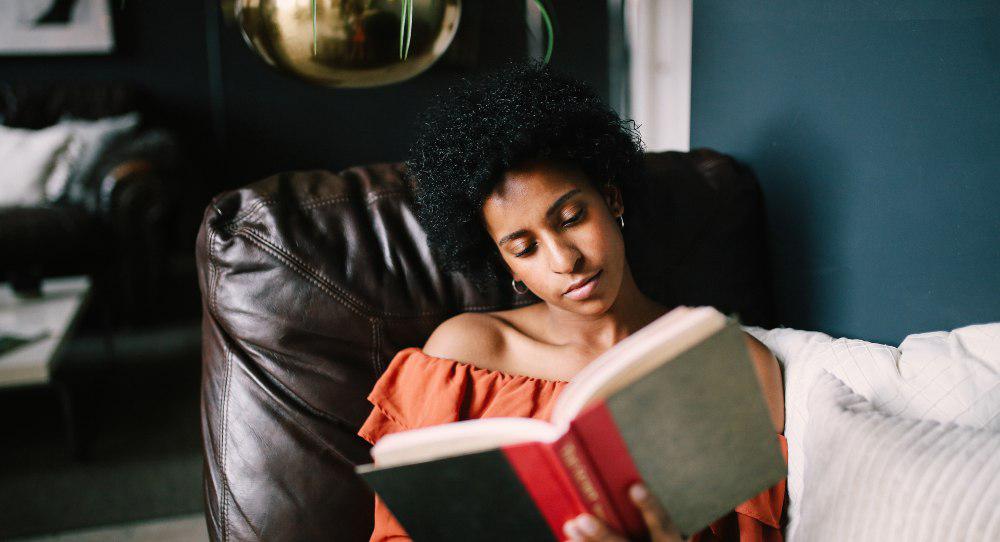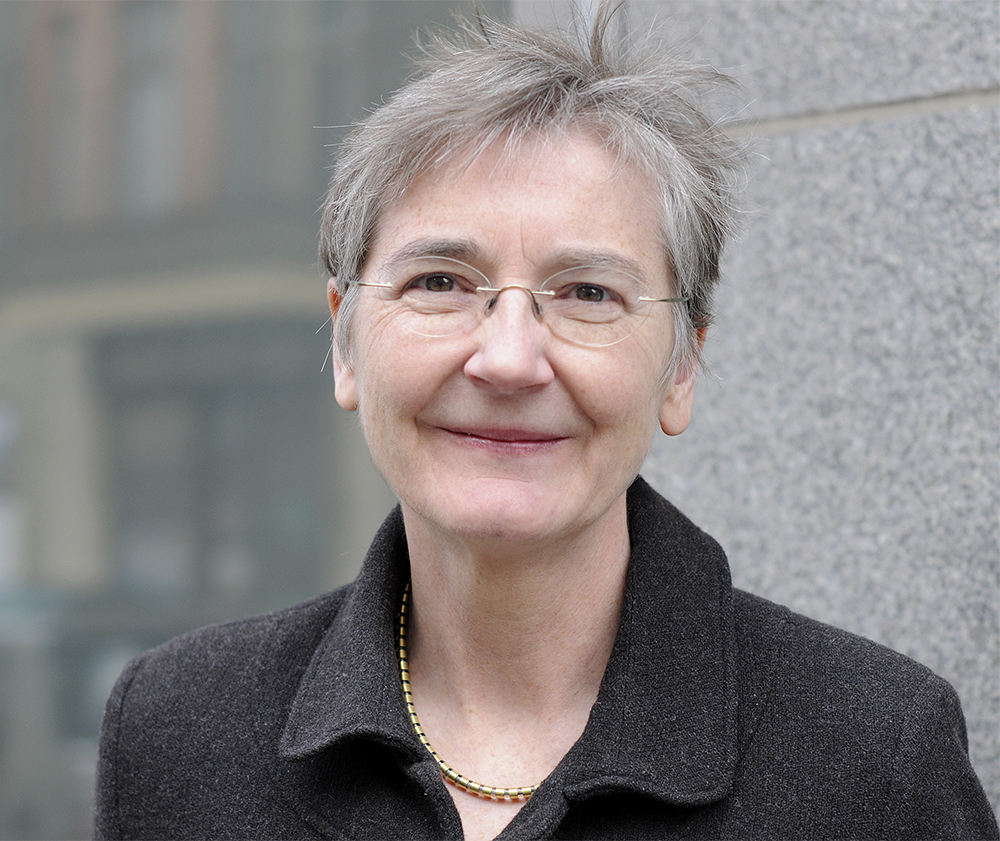Judy Dempsey
{
"authors": [
"Judy Dempsey"
],
"type": "commentary",
"blog": "Strategic Europe",
"centerAffiliationAll": "",
"centers": [
"Carnegie Endowment for International Peace",
"Carnegie Europe"
],
"collections": [],
"englishNewsletterAll": "",
"nonEnglishNewsletterAll": "",
"primaryCenter": "Carnegie Europe",
"programAffiliation": "",
"programs": [],
"projects": [],
"regions": [],
"topics": []
}
Source: Getty
What Are You Reading?, July, 7, 2020
It’s that time of year again for friends and colleagues to recommend their summer switch-off lists. Lockdown gave some an opportunity to read more, while for others spare minutes were rare. I hope you really enjoy what’s on offer.
Rosa BalfourDirector of Carnegie Europe
As we cautiously emerge from confinement, this summer’s exploration of other worlds will happen only by reading. I will travel the past, Asia, and go back to the UK, which I have missed for too long.
Politics or History
I will delve into Europe’s recent past with a couple of books by great historians—Ian Kershaw and Perry Anderson—whose work on Nazism and socialism I got to know as a student. Their recent works—Roller-Coaster: Europe, 1950-2017 and The New Old World, respectively—explore the recent history of Europe, trying to make historical sense of these crisis years.
Fiction
To raise my horizon beyond the continent I know well, I will travel with my imagination to India with a couple of fictional and nonfictional titles. Years ago, I thoroughly enjoyed Arundhati Roy and Amitav Gosh. I will know go back to them with The Ministry of Utmost Happiness, which promises to be as enchanting as The God of Small Things, and The Great Derangement: Climate Change and the Unthinkable, a pioneering, evocative, and personal analysis of the climate crisis.
Guilty Pleasure
It’s always thrillers and noirs. This year, my choice is for something very current, Brexit, with John le Carré’s latest novel, Agent Running in the Field.
Caroline de GruyterEuropean Affairs Correspondent for NRC Handelsblad
Politics or History
The Mirador: Dreamed Memories of Irène Némirovsky by Her Daughter by Élisabeth Gille. An amazing read, not just as a biography of a talented, smart French-Russian writer who was murdered by the Nazis, but also because it is a book about the first three decades of the last century and about how people tried to cope in times of extreme upheaval. One can’t help drawing comparisons to 2020 all the time.
Les Amnésiques by Géraldine Schwarz. Compelling book on Mitläufer—those who go with the current—in Germany and France before, during, and after World War II. Schwarz includes her own family in both countries and manages to raise plenty of important questions about our behavior today, too.
Fiction
An Enemy of the People: an Adaptation of the Play by Henrik Ibsen by Arthur Miller. A powerful play about truth, tyranny, and the individual versus the group, set in a small Norwegian village. It’s being performed again all over the world—no wonder.
Steven ErlangerChief Diplomatic Correspondent in Europe for the New York Times
Politics or History
Three quick suggestions: Say Nothing by Patrick Radden Keefe, a compelling investigation of the Irish Republican Army’s murders of supposed informers and the role of Gerry Adams, Sinn Féin’s leader; Rouge Vif by Alice Ekman, a fine look at China; and Le Temps des Prédateurs by François Heisbourg, aptly subtitled “China, the United States, Russia, and Us.”
Fiction
Girl, Woman, Other by Bernardine Evaristo. Funny, moving portraits of a group of mostly black friends and their families in London. Joint Winner of the Booker Prize in 2019.
Film or TV Series or Podcast
The Salisbury Poisonings. Three parts on BBC. A bit sappy at the end, but an excellent reminder of the impact of the callous, careless, criminal Russian use of Novichok in an English town.
Guilty Pleasure
Bosch, the American police series (six so far) set in Los Angeles, built on compelling characters and drawn from the novels of Michael Connelly.
Florence GaubDeputy Director of the European Union Institute for Security Studies
Politics or History
Time Warped: Unlocking the Mysteries of Time Perception by Claudia Hammond. If you want to get better at foresight, you need to hone your perception of time—in this book, you learn what lengthens time, what shortens it, and how many inner clocks you have.
Fiction
The Man Who Loved Dogs by Leonardo Padura. Three summers ago, I stood outside the dilapidated house that Leon Trotsky called home for four years on Büyükada in Turkey. Our paths crossed again in this book written by a Cuban author discovered during the lockdown—except it’s not about Trotsky but about his assassin.
Film or TV Series or Podcast
The Secret History of the Future. I learned in this podcast that the invention of the printing press stressed out people because of information overflow. How they managed that stress bears useful lessons for us today in a similar situation. History is a treasure trove for those seeking to understand humans.
Guilty Pleasure
I follow Caroline Calloway, a writer that uses Instagram to prose like a modern-day Dorothy Parker or Irmgard Keun. Her style is an ice cream my mind loves to get its spoon into.
Mary C. MurphyJean Monnet Chair in European Integration and Lecturer at the University College Cork
Politics or History
Alarums and Excursions: Improvising Politics on the European Stage by Luuk van Middelaar. A charming theatrical theme is woven throughout this thought-provoking reflection on the EU’s recent woes and future prospects.
Fiction
Milkman by Anna Burns. As a strange and sometimes challenging read about Northern Ireland’s Troubles, this book skillfully illustrates the invidious ways in which conflict distorts and damages individuals and societies.
Film or TV series or Podcast
Netflix series Ozark is a thoroughly intriguing story about a seemingly normal family engaged in a murky and dangerous money-laundering scheme.
Guilty Pleasure
Any episode of Modern Family!
Marc PieriniVisiting Scholar at Carnegie Europe
Politics or History
Nous l’Europe: Banquet des Peuples by Laurent Gaudé, a successful contemporary French novelist. This time, he has endeavored to tell an epic of European history, from the wars and the industrial revolution to the modern day utopia of a continent united beyond its differences and past conflicts.
Fiction
Il Peso Della Farfalla by Erri de Luca. Translated in many languages, this powerful narrative is about high mountains, nature, chamois, and men. Challenging reading in Italian for non-native Italian speakers, but fascinating style and vocabulary.
Film or TV Series or Podcast
La Vita è Bella, Roberto Benigni’s 1997 film, won three Oscars and had more than 35 million viewers in movie theaters. A deeply moving (and at times even funny) way of showing the Holocaust from an Italian standpoint. Possibly my all-time favorite movie.
Guilty Pleasure
All the 2020 TikTok videos of Sarah Cooper lip-synching U.S. President Donald Trump speeches. An impressive rendition of Trump’s absurdities based solely on his own words. Modern-style Charlie Chaplin stuff!
About the Author

Nonresident Senior Fellow, Carnegie Europe
Dempsey is a nonresident senior fellow at Carnegie Europe
- Europe Needs to Hear What America is SayingCommentary
- Babiš’s Victory in Czechia Is Not a Turning Point for European PopulistsCommentary
Judy Dempsey
Recent Work
Carnegie does not take institutional positions on public policy issues; the views represented herein are those of the author(s) and do not necessarily reflect the views of Carnegie, its staff, or its trustees.
